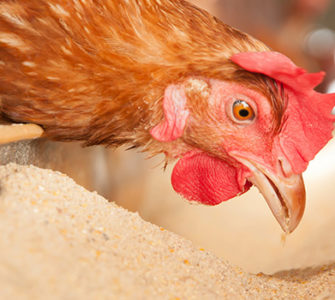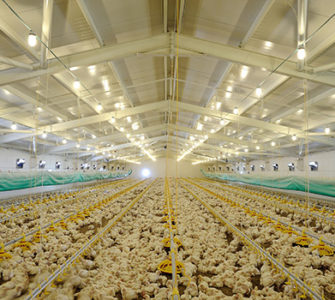Natural disease resistance could be bred into chickens, scientists say
Selecting birds that are naturally more resistant to disease could help the poultry industry reduce antibiotics use in the future, say researchers.
Scientists at Wageningen University in the Netherlands found that selecting animals with higher levels of naturally-occurring antibodies enables birds to block and prevent pathogens from spreading.
They hope the findings could eventually lead to producers being able to breed animals with improved general disease resistance, helping to reduce the need for antibiotics, lower production costs for farmers, and improve animal welfare.
In a study published in the journal Vaccine, researchers set out to test previous studies suggesting that natural antibodies are inherited and can therefore be altered by breeding.
By selecting layer chickens for high or low natural antibody levels, they also wanted to identify whether higher levels of natural antibodies were linked to higher survival rates.
The study involved hens from two generations, with birds from the second generation vaccinated with one of three different vaccines.
Each vaccine aimed to trigger different immune responses: one against viruses, one against bacteria, and another specific for the researchers’ selection on natural antibodies.
Lead researcher Tom Berghoff said compared to animals with low levels of natural antibodies, those with levels had a higher antibody response against bacterial vaccines, but not to the other vaccines.
“This suggests that animals with higher natural antibodies might have better protection against bacterial diseases,” he said.
Berghoff said the study offers a “hopeful perspective” to breed chickens on natural antibody levels to improve general disease resistance, especially towards bacteria.
However, he said it is important to first find out more about selecting for natural antibodies, so he and his team will continue the selection for two more generations.
“In addition, we will investigate if the lines also respond differently to real bacterial pathogens, and if they differ in other forms of protection against, for example, viruses,” he added.
Posted on July 20, 2018
















